As a BetterHelp affiliate, we receive compensation from BetterHelp if you purchase products or services through the links provided
Resilience is a critical quality that enables individuals and organizations to bounce back from challenges and setbacks. This ability to adapt and recover from misfortunes is a crucial element in our professional and personal lives. Commitment to resilience is essential in this process, driving the success of high-reliability organizations (HROs) that manage high levels of risk and complexity while avoiding catastrophes.
Understanding and building resilience starts with recognizing its key components: confidence, commitment, a sense of control, and a willingness to face challenges. An essential aspect of fostering resilience is the role of personal and professional relationships that provide support, encouragement, and guidance through difficult times. Those committed to resilience intentionally invest in these connections, practicing proactive strategies and coping mechanisms to navigate adversity.
Research and experience have shown that dedicating oneself to resilience development has long-term benefits. This includes improved mental health, increased work satisfaction, and higher overall well-being. To truly cultivate this powerful trait, embracing not only the successes but also the learning experiences derived from challenges is indispensable.
Key Takeaways
- Resilience is crucial for individuals and high-reliability organizations facing challenges and setbacks.
- Commitment to resilience involves fostering valuable relationships, proactive strategies, and coping mechanisms to navigate adversity.
- Embracing experiences derived from challenges can promote personal growth and development, enhancing overall mental health and well-being.
 Understanding Resilience
Understanding Resilience
Defining Resilience
Resilience is the ability to adapt successfully in the face of stress, adversity, and setbacks. It’s the capacity to remain flexible in your thoughts, feelings, and behaviors when confronted by challenging life events or extended periods of pressure. That way, you emerge stronger, wiser, and more capable of these difficulties. Resilient individuals can recover from negative experiences and regain their confidence more quickly. By doing so, they maintain a positive outlook, laugh at their misfortunes, and find a way to move forward.
Some key aspects of resilience include:
- Maintaining a positive perspective despite setbacks
- Believing in your ability to achieve your goals, even after failure
- Dealing with stress and anxiety in a productive and healthy manner
- Seeking validation and support from others when needed
Importance of Resilience
Building resilience is crucial for your overall well-being because it helps you navigate life’s inevitable ups and downs. A strong sense of resilience allows you to cope effectively with stress, anxiety, and negative emotions that might otherwise lead to depression or other mental health issues.
Here are some benefits of being resilient:
- Better emotional regulation: Your ability to handle your emotions and maintain composure under pressure will enable you to experience a more balanced and fulfilling life.
- Enhanced problem-solving skills: A resilient attitude promotes creative thinking, allowing you to find solutions to obstacles that might seem insurmountable at first glance.
- Increased determination and perseverance: When setbacks occur, you can focus on your objectives, continue to strive for success, and avoid becoming disheartened by temporary obstacles.
Adopting a resilient mindset helps you see the positive side of every situation and stay committed to your goals, no matter how challenging. Remember, resilience is not just about bouncing back from difficult experiences; it’s also about learning and growing from them. So next time you face a challenge, remind yourself that it’s an opportunity for personal growth – and that you have the strength and resilience to overcome it!
The Concept of High Reliability Organization
Core Principles of HRO
High-Reliability Organizations (HROs) are known for effectively avoiding catastrophes in high-risk and complex environments, such as nuclear power plants, air traffic control systems, and naval aircraft carriers. The foundation of HROs lies in five core principles:
- Sensitivity to operations: You should always pay close attention to the processes and activities within your organization to maintain a thorough understanding of the situation.
- Preoccupation with failure: You must identify, learn from, and avoid minor errors to prevent more significant failures.
- Reluctance to simplify: Instead of seeking simple explanations, you should embrace the complexity of the organization and analyze it thoroughly.
- Commitment to resilience: Adapt and bounce back in case of unexpected challenges or setbacks.
- Deference to expertise: Acknowledge the importance of expertise and prioritize decisions based on knowledge and experience rather than status or title.
These principles help you build a strong organizational structure centered around safety, efficiency, and adaptability.
Significance in Health Care
In the healthcare sector, adopting HRO principles is crucial for ensuring patient safety and delivering high-quality care. By applying these foundations, healthcare organizations can achieve benefits such as:
- Improved standardization of processes, leading to reduced medical errors and more consistent patient care.
- Enhanced leadership focused on safety, which promotes a culture of continuous improvement and learning.
- Better communication and collaboration among teams, facilitating quicker and more informed decision-making.
Key takeaway: High Reliability Organizations focus on avoiding major failures in high-risk and complex environments through a set of core principles. These principles, when applied in health care, lead to improvements in patient safety, quality of care, and overall organizational performance.
 Commitment to Building Resilience
Commitment to Building Resilience
From Management Perspective
As a manager, your role in fostering a resilient environment is essential. You can start by promoting an open and trusting management style. This involves communicating transparently, listening to your team’s concerns, and showing empathy.
Here are some tips to demonstrate commitment to building resilience:
- Encourage collaboration: Foster a culture of support and teamwork where team members feel comfortable sharing their challenges and receiving help from their peers.
- Training: Offer learning opportunities for your team members to develop the skills to handle setbacks and stress effectively.
- Celebrate successes: Recognize and appreciate individual and collective achievements to motivate and inspire your team.
Key takeaway: As a manager, your approach is vital in cultivating a resilient work environment. Invest time and effort in creating a trust, support, and learning culture.
Role of Purpose and Goals
To successfully commit to building resilience, it’s crucial to have a clear purpose and defined goals. These elements give your team a sense of direction and help maintain focus during challenging times.
Consider the following when establishing purpose and goals for resilience:
- Align your team with the organization’s mission: Encourage your team to understand and connect with the company’s objectives. This alignment can foster a sense of purpose and promote resilience.
- Set realistic, achievable goals: Break down your vision into smaller, attainable objectives, and work together to accomplish them. This promotes resilience by demonstrating progress and success, even in the face of setbacks.
- Foster personal growth and development: Encourage your team members to set their goals in alignment with their career aspirations. Doing so will make them more committed and resilient in pursuing their ambitions.
Key takeaway: Establishing a clear purpose and well-defined goals fosters resilience. Engage your team in understanding the bigger picture while offering personal growth and development support.
 Role of Relationships in Resilience
Role of Relationships in Resilience
Everyone faces challenges in life, and resilience is the ability to bounce back from these difficult situations. Relationships are crucial in building your ability to adapt and stay strong. This section will explore how relationships with leaders and at home can contribute to building resilience.
Bonding with others offers a feeling of connection and support that helps you weather tough times. In both your personal life and the workplace, positive relationships with friends, family members, and colleagues can offer the guidance and encouragement needed to push through hardships. These connections can be built by actively participating in social events, volunteering, joining clubs, and engaging in heartfelt conversations.
In the workplace, a good leader can foster resilience among their team members by creating a supportive and inclusive environment, providing clear expectations, and offering opportunities for growth and learning. As an employee, you can take the initiative in seeking feedback and embracing new challenges, which can strengthen your resilience and commitment to your career.
At home, a robust support system is invaluable for developing resilience. Open lines of communication, being available to listen and offer support, and expressing love and appreciation are all essential factors in fostering a home environment that encourages personal growth and resilience.
Here are some tips to help you nurture relationships and build resilience:
- Stay connected: Regularly keep in touch with friends and family members in person and through social media or phone calls.
- Offer support: Be there for others in their time of need by lending an empathetic ear or offering help when possible.
- Accept help: When you face a tough time, reach out to your loved ones for emotional or practical support.
- Be open: Share your feelings and experiences with those you trust and encourage them to do the same.
By cultivating strong relationships with leaders in your workplace and fostering a supportive atmosphere at home, you’ll be better equipped to handle adversity and develop the resilience needed to thrive in any situation.
 Challenges and Coping Mechanisms
Challenges and Coping Mechanisms
Dealing with Setbacks
Setbacks are a natural part of life; encountering challenges is essential to build resilience. When faced with setbacks, it’s crucial to recognize them as opportunities for growth rather than dwelling on the negative aspects. Here are some tips to deal with challenges effectively:
- Accept the situation: Understand that not everything will go as planned. Accept the reality and acknowledge your feelings, but don’t let them dictate your actions.
- Learn from your mistakes: Reflect on what went wrong, and identify what you can do differently in the future.
- Stay positive: Focus on your achievements and strengths rather than obsessing over the setbacks. This will help you maintain a positive outlook and boost your confidence.
- Seek support: Reach out to friends, family, or a professional counselor when needed. Talking to someone can help you gain perspective and find new coping strategies.
It’s essential to remember that setbacks are temporary, and with the right attitude and determination, you can overcome them and emerge stronger.
 Resource Management
Resource Management
Effective resource management can play a significant role in building resilience. By proactively and reactively managing your resources, you can develop coping mechanisms to handle challenges as they arise. Consider the following strategies for resource management:
- Proactively invest in personal growth: Engage in activities that foster personal development, such as reading, participating in workshops, or taking online courses. These activities will equip you with knowledge and skills to confront future challenges.
- Create a support network: Cultivate relationships with people who can offer emotional and practical assistance. Fostering strong connections will help you cope with future setbacks.
- Practice self-care: Attend to your physical, emotional, and mental well-being. A healthy lifestyle can make you more resilient in the face of adversity.
- Prioritize tasks: Avoid feeling overwhelmed by dividing tasks into smaller, manageable goals. This will help you stay focused and ensure that you allocate resources efficiently.
As you manage your resources effectively, you’ll notice that facing challenges becomes more manageable and your ability to cope with setbacks improves. So, dedicate time and attention to these strategies, and you’ll be on your way to building resilience.
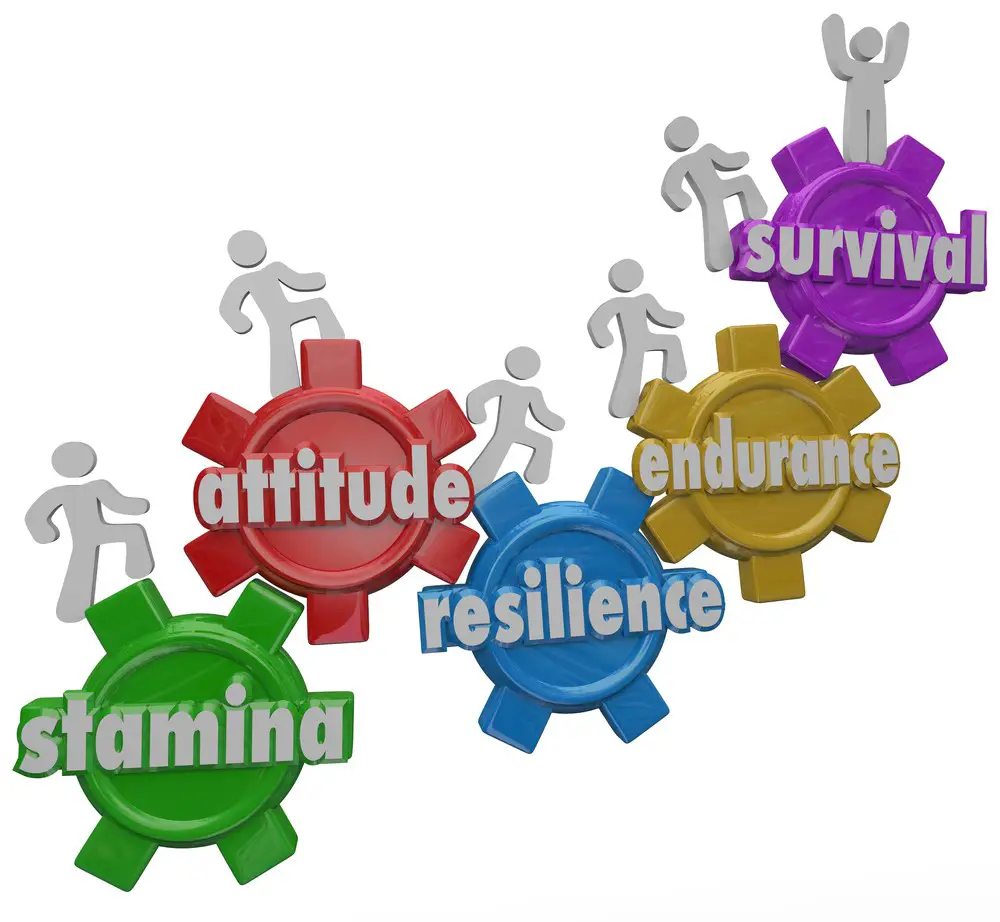
Influence of Research and Experience
Understanding through Research
Regarding commitment to resilience, research plays a pivotal role in helping you identify strategies for personal growth and enhancing well-being. Research findings on resilience help you understand the factors contributing to individuals overcoming adversity and success even under challenging circumstances.
For instance, studies have shown that emotional stability and experience influence exhaustion and commitment trajectories, impacting resilience. You can identify and implement evidence-based techniques to boost your resilience and overall well-being by keeping up-to-date with the latest research.
Key Takeaway: Staying well-informed about resilience research enables you to make informed decisions on improving your resilience and benefit from its positive impacts.
Learning from Experience
Apart from research, your own experiences are valuable sources of insight when it comes to building resilience. By reflecting on the challenges you have faced and the lessons learned from overcoming them, you can continually monitor your personal growth and identify areas for improvement.
Here are some tips on how you can learn from your experiences:
- Maintain a journal to record and reflect on your journey, including your struggles, achievements, and any setbacks.
- Share your experiences with trusted friends, mentors, or support groups, as this can provide additional perspectives, feedback, and guidance.
- Take note of any moments of growth or success, no matter how small, and celebrate your accomplishments as they contribute to your overall resilience.
Incorporating learnings from your experiences into your resilience-building strategies helps you develop a well-rounded approach supported by research and personal insights.
Key Takeaway: Regularly reflecting on your experiences and integrating the lessons learned into your resilience-building efforts can be invaluable in fostering a more resilient you.
Conclusion
Ultimately, a commitment to resilience takes you a long way on your life journey. It helps nurture hope even in the face of adversity and strengthens you as you bounce back from setbacks. Developing a resilient mindset allows you to transform challenges into opportunities for personal growth.
Remember, you can always tap into resiliency resources that help sustain your commitment to bouncing back, such as:
- Embracing a positive outlook: Keep your eyes on the prize and maintain a sense of purpose.
- Building a strong support network: Surround yourself with people who uplift and motivate you.
- Cultivating your coping skills: Practice stress management techniques, such as deep breathing, meditation, or exercise.
- Nurturing mental and emotional flexibility: Be open to new perspectives or ways of tackling problems.
One key strategy to foster resilience involves setting realistic goals and steadily working towards them. Break them into smaller, manageable steps, and consistently adjust your plans as needed. This will help keep your momentum going as you navigate through challenging situations.
Moreover, don’t hesitate to ask for help or seek assistance when needed. A robust support system can work wonders for your commitment to resilience.
Always remind yourself that every obstacle you overcome only enhances your resiliency. Stay hopeful, and trust your ability to bounce back stronger and wiser. Embrace your commitment to resilience, and life’s hurdles will become stepping stones to success.
Frequently Asked Questions
How can organizations enhance their operational resilience?
Organizations need to identify potential risks and vulnerabilities to enhance operational resilience and develop strategies to counter them. This can include:
- Implementing processes to review and update risk assessments regularly
- Establishing clear communication channels to deal with emergencies
- Encouraging collaboration between departments and teams
- Developing disaster recovery and business continuity plans
- Providing employee training and resources to help manage stress and adapt to changes
Key takeaway: Enhancing operational resilience requires a proactive approach to identifying and managing risks and fostering a culture of adaptability and collaboration.
What are effective strategies to prevent failure in HROs?
High Reliability Organizations (HROs) use strategies to prevent failure, such as:
- Fostering a culture of learning from past mistakes and near misses
- Maintaining a strong focus on safety and error prevention
- Encouraging open communication and information sharing
- Implementing robust systems for monitoring and detecting potential issues
- Applying evidence-based decision-making processes
Key takeaway: Preventing failure in HROs requires embracing a safety culture and a systematic risk management approach.
How does an HRO simplify complex processes?
HROs simplify complex processes by:
- Breaking down tasks into smaller, manageable steps
- Implementing standard operating procedures to ensure consistency
- Using visual aids, such as flowcharts and checklists, to clarify processes
- Encouraging feedback from employees to identify opportunities for improvement
- Regularly reviewing and updating procedures to maintain their effectiveness
Key takeaway: Simplifying complex processes in HROs involves breaking tasks down, standardizing procedures, and embracing continuous improvement.
Why is sensitivity to operations important in HROs?
Sensitivity to operations in HROs is crucial because it enables organizations to:
- Quickly identify and address emerging issues or discrepancies
- Maintain a comprehensive understanding of the current state of operations
- Make data-driven decisions that positively impact performance and reliability
- Promote a culture of accountability and continuous improvement
- Encourage open communication and information sharing across the organization
Key takeaway: Sensitivity to operations allows HROs to remain agile and responsive, facilitating informed decision-making and promoting a culture of accountability.
How does deference to expertise improve an organization’s reliability?
Deference to expertise involves valuing and leveraging the knowledge and input of experienced professionals. This approach improves reliability by:
- Ensuring that decisions are informed by expert knowledge and experience
- Encouraging collaboration and exchange of ideas within and across teams
- Reducing the likelihood of errors and oversights resulting from a lack of expertise
- Fostering a culture of continuous learning and development
Key takeaway: By valuing and utilizing expertise, organizations can make more informed decisions, reduce errors, and support a culture of continuous improvement.
What factors contribute to building a resilient organization?
Resilient organizations typically exhibit the following characteristics:
- Clear and consistent communication channels
- Adaptable and flexible processes and structures
- Strong support networks, both internally and externally
- A culture of learning from experiences, both positive and negative
- Active engagement and accountability at all levels
Key takeaway: Building a resilient organization involves fostering adaptable processes, strong support networks, and a culture of learning and accountability.
About Jacob Maslow
The Backbone of Resilience: How Commitment to Therapy Empowers You ?
Life has a funny way of tossing curveballs at us when we least expect it. For me, Jacob Maslow, resilience is not just a buzzword; it’s a way of life. From enduring the events of 9/11 to facing a tumultuous divorce and ongoing legal battles, my journey has had its fair share of bumps. Yet, I’m here to say I bend but will never break. ?
When Therapy Becomes a Lifeline ?️
I’m a therapy veteran and have found an extra layer of support in BetterHelp. My ex-wife stopped cooperating with reunification therapy when our kids agreed to end their alienation from me. As if that wasn’t enough, she also began refusing communication between us and our children, disregarding court orders and effectively shredding our shared custody agreement.
? Tip: In challenging times, it’s essential to have a network of support. Platforms like BetterHelp offer the flexibility to choose a therapist who truly understands your unique situation.
Navigating the Murky Waters of Narcissism ?️
My ex-wife suffers from severe narcissism, which only intensifies as she ages. The same person who once chased community leaders to have affairs now wages smear campaigns against them. It’s been a lesson in typical narcissistic behavior.
? Tip: When dealing with a narcissistic partner, remember that their actions are a reflection of them, not you. Maintain your boundaries and keep your emotional health at the forefront.
Staying Strong in The Face of Parental Alienation ???
Losing a close relationship with my children over the last nine months has been heartbreaking and challenging for my mental health. So how do I cope? I take long walks daily to clear my head and focus on what I can control.
? Tip: Exercise is a proven mood booster. When you’re feeling low or overwhelmed, a long walk or any physical activity can offer emotional relief.
The Power of the Written Word ?
Writing has been my outlet and a way to give back. I pen articles on mental health and narcissism to offer solace to those going through similar struggles. I also run a legal site focused on helping individuals grappling with partners who weaponize children and violate court orders.
No One Walks Alone ?
If you’re also going through the painful journey of parental alienation, mental health issues, or a turbulent divorce, remember this: No one walks alone. BetterHelp and its sister platform, Regain.us, offer resources for those in toxic relationships and family estrangements.
? List of Resources for Further Reading:
- “Splitting: Protecting Yourself While Divorcing Someone with Borderline or Narcissistic Personality Disorder” by Bill Eddy
- “Adult Children of Emotionally Immature Parents” by Lindsay C. Gibson
- “Will I Ever Be Good Enough?” by Dr. Karyl McBride
Remember, recovery is a choice. We all have our battles, but deciding whether we let them define us is up to us. You’re stronger than you think; your resilience will be your greatest asset. ?

- How to Transform a Home’s Patio Space into a Relaxing Space - March 23, 2025
- 5 Strategies to Use a Cell Phone to Help Manage Your Stress - March 23, 2025
- 4 Ways to Use Measurements to Create a Relaxing Sleep Space - March 23, 2025
This site contains affiliate links to products. We will receive a commission for purchases made through these links.

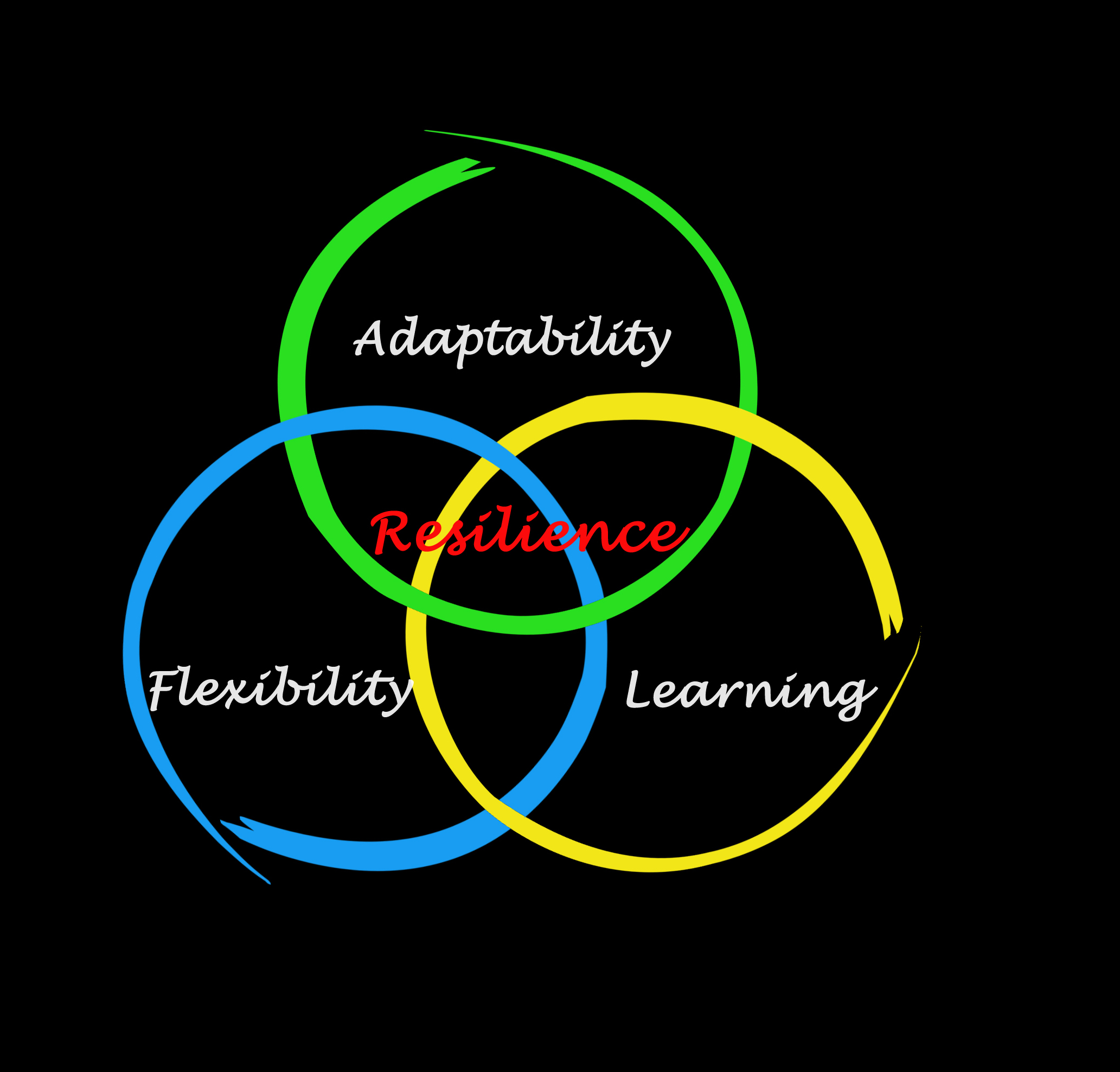
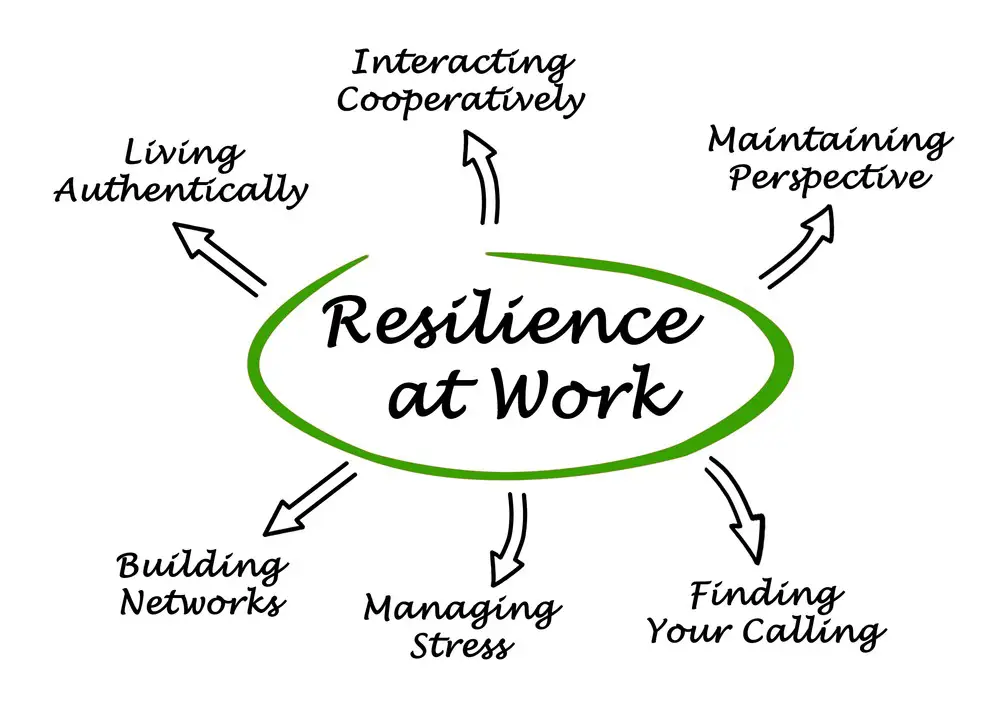 Understanding Resilience
Understanding Resilience Commitment to Building Resilience
Commitment to Building Resilience Role of Relationships in Resilience
Role of Relationships in Resilience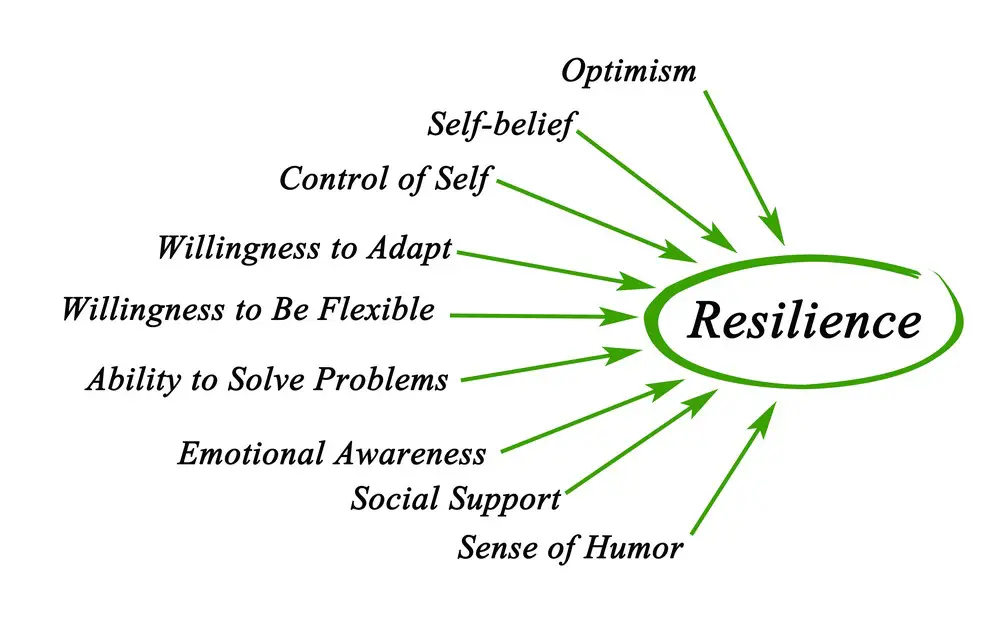 Challenges and Coping Mechanisms
Challenges and Coping Mechanisms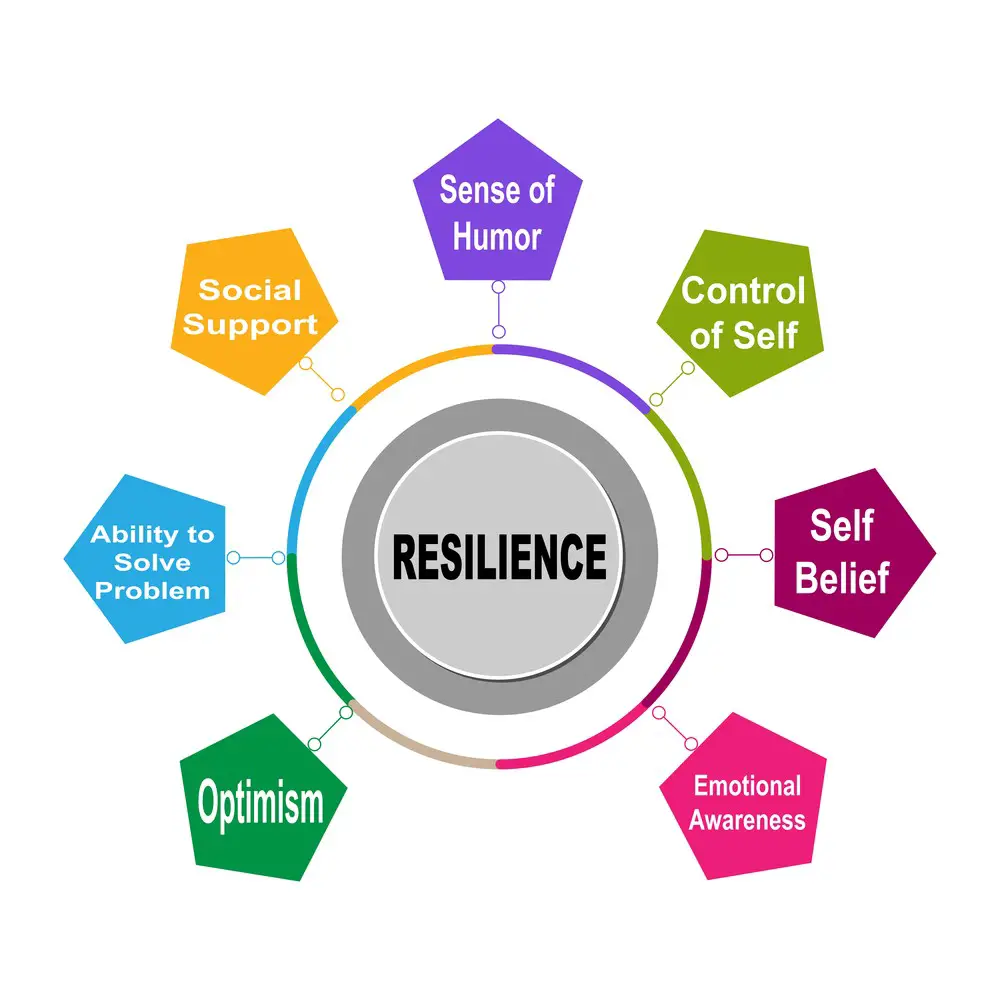 Resource Management
Resource Management
